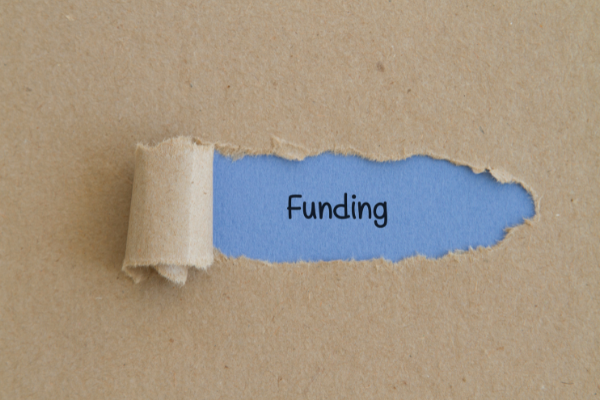Deadline: 31-Dec-21
The MeerWissen has announced a Call for Proposals of the MeerWissen Initiative that aims at strengthening the knowledge base for marine and coastal Nature-based Solutions (NbS) in selected African countries.
This call has been developed as a contribution to the UN Decade of Ocean Science for Sustainable Development 2021 – 2030 (‘the Ocean Decade’). Successful projects will be endorsed as Decade Actions and formally recognised as part of the Ocean Decade.
MeerWissen encourages a Co-design approach and building “partnerships of equals”. This is to ensure that project partners are jointly setting priorities and that outcomes meet local needs and can be used by all partners as well as decision-makers. To strengthen this approach a dedicated Co-design phase of up to 9 months will be funded followed by an implementation and dissemination phase of 2 years.
Objectives
- Strengthening of marine NbS
- Co-design and partnerships of equals
- Capacity Development
- Science-Policy
- Data, Innovation and Technology
Funding Information
- Co-design phase:
- Duration: flexible between 6-9 months beginning June 2022, depending on the status of the partnership, the project and planned activities
- Budget: flexible, depending on planned activities (approx. 50.000 – 80.000 EUR as a rough guide)
- Full implementation of the two-year partnership project:
- Duration: two years, beginning after the Co-design phase ends (latest March 2023 until Feb. 2025).
- Budget: flexible, depending on planned activities and overall budget ceiling of 360.000 EUR (for both Co-design and implementation phase).
Geographic Areas
Eligible countries: MeerWissen supports partnership projects in the following African coastal states that are partner countries of German development cooperation: Algeria, Benin, Côte d’Ivoire, Egypt, Ghana, Madagascar, Mauritania, Morocco, Mozambique, Namibia, Nigeria, Senegal, Somalia, South Africa, Sudan, Tanzania, Togo, and Tunisia.
Eligibility Criteria
- Commercial and legal Eligibility
- All partner institutions receiving funds will be given an individual grant agreement by GIZ.
- In order to receive funding, these organisations must fulfil legal and commercial eligibility requirements:
- Contracting African partner institutions must be legal entities and have public-benefit or non-profit status.
- Contracting German partner institutions with head office in Germany must be governed by German public law or must have a public benefit status.
- Eligible organisations, partnerships and projects
- MeerWissen supports partnerships of at least one African and one German academic institution based on a jointly submitted proposal. It is required that one of the two academic partner organisations submits the application and acts as coordinator of the Co-design phase.
- They welcome the African partner to take the lead as most Co-design activities are expected take place in the African partner country.
- For the Co-design phase the coordinating partner will receive funding for the joint implementation of activities involving the other partner(s). For the full two-year project implementation phase up to three partner organisations will each receive funding to implement the work packages assigned to them in the joint full proposal to be submitted three months before the Co-design phase ends. In detail:
- Partnership projects eligible for funding under this Call for Proposals follow a two-staged approach based on the following conditions and modalities:
- Co-design phase:
- Funding modality: Provision of only one grant to the academic partner organisation that acts as coordinator of the jointly implemented Co-design phase. All expenditures (including travel costs of other partners) are to be covered by this grant and to be administered by its recipient:
- Eligible expenditure includes staff costs incurred by the grant recipient for coordination of the Co-design phase and administration of the grant.
- Forwarding of funds is excluded.
- In-kind contributions: All partners contribute in-kind staff time for implementation of Codesign activities.
- Three months prior to the end of the Co-design phase, project partners submit a joint, co-designed full proposal for implementation of a two-year partnership project to the MeerWissen Secretariat for approval prior to the release of funds for the full implementation phase. At this second stage the applicants are not competing with each other.
- During the remainder of the Co-design phase until full implementation commences (roughly three months, since full proposal is due three months prior to Co-design ending), project partners jointly reflect, evaluate, document and share experiences and results of the Co-design phase in the form of a report and additional knowledge products such as a web-story, video clip or other.
- Funding modality: Provision of only one grant to the academic partner organisation that acts as coordinator of the jointly implemented Co-design phase. All expenditures (including travel costs of other partners) are to be covered by this grant and to be administered by its recipient:
- Full implementation of the two-year partnership project:
- Contractual arrangement: Based on a joint, co-designed full project proposal to be submitted by the Co-design coordinator three months before the end of the Codesign phase, up to three grants will be provided for the main project partners.
- The proposal details individual work packages and budgets assigned to each partner. Decision-making in the joint project is governed by an MoU (or similar) between partners which will be submitted with the full project proposal.
- As forwarding of funds to additional partners entails increased administrative complexity for the forwarding partner, it will only be considered in well-justified exceptional cases.
- Co-design phase:
For more information, visit https://meerwissen.org/3rd-call-for-proposals
